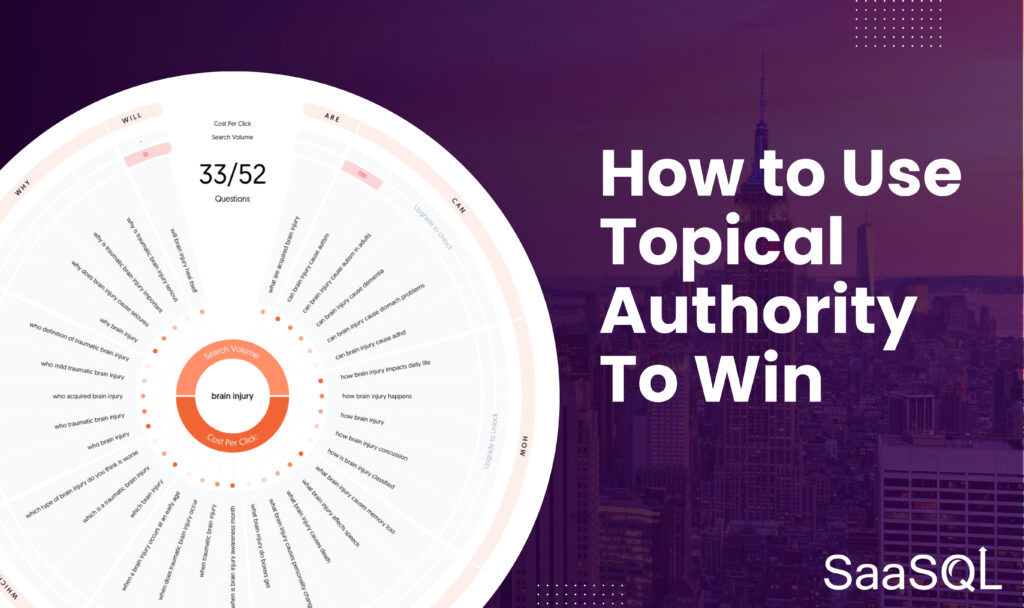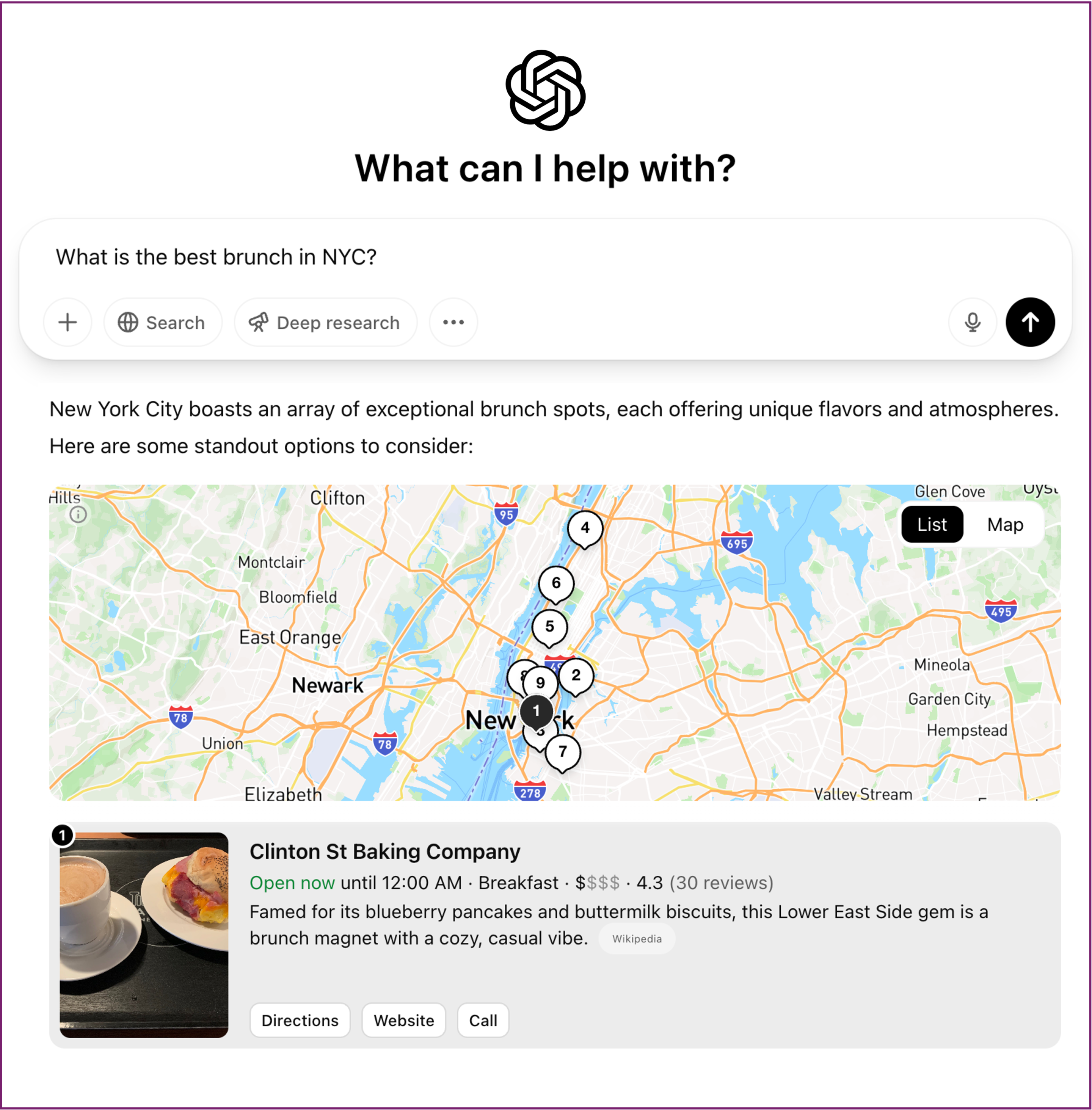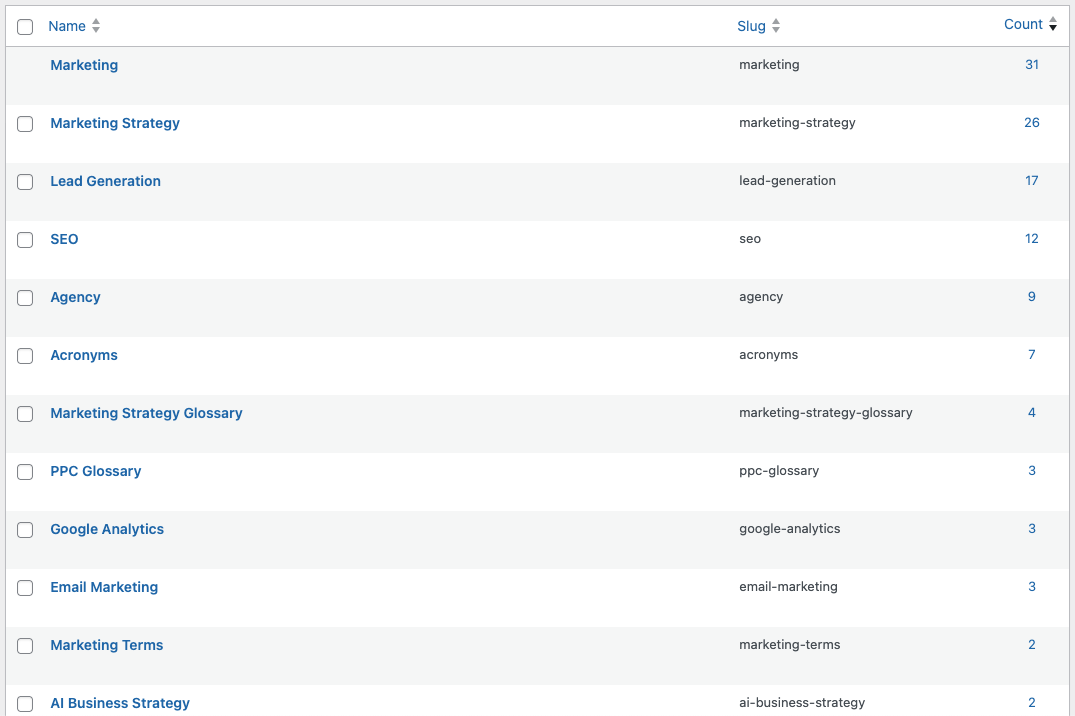Why Topical Authority Is the New Currency of AI Search
Consumers aren’t searching like they used to. Google is no longer the starting point for everyone, and SEO strategies built around page rankings are hitting a ceiling. In 2025, a growing number of users are skipping search engines altogether. They’re turning to ChatGPT, Bing AI, Perplexity, and voice assistants for answers—not links.
That shift changes everything.

To stay visible, brands need to rethink how information is discovered. The winners in this new era aren’t the ones with the most keywords. They’re the ones with the most topical authority.
What Is Topical Authority?
Topical authority is the signal AI tools use to determine who knows what they’re talking about. It’s how engines decide which businesses, publishers, or professionals should be quoted when users ask questions. It isn’t based on who paid the most for ads or who has the most backlinks. It’s based on depth, structure, and clarity—at scale.
If your business wants to show up in AI-generated answers, it has to be recognized as a subject-matter expert. That means your content must go beyond optimization. It has to demonstrate expertise in a way that AI can read, understand, and trust.
The rules have changed. Traditional SEO won’t get you into the next generation of search. But building topical authority will.
So what exactly is topical authority? And how do you earn it in a world where AI is the new gatekeeper?
Why Topical Authority Is the New Currency of AI Search
For nearly two decades, SEO was built on one premise: get to page one of Google. Rankings, backlinks, and keyword density formed the core strategy. But AI search engines don’t deliver ten links. They deliver one answer.
And that answer doesn’t just come from whoever ranks highest. It comes from whoever has the most topical authority on the subject being asked.
AI tools like ChatGPT and Bing AI don’t scrape the web in real time. They rely on trained models, structured data, and trusted sources to generate responses. When a user asks, “How do I fix a leaky faucet?” or “What’s the best CRM for a small business?”—the AI pulls from brands and websites it already sees as experts.
That means content needs to go beyond visibility. It needs to demonstrate depth, credibility, and contextual relevance—not just once, but repeatedly, across a topic cluster. A single blog post isn’t enough. AI wants to know: have you written consistently about this topic? Do others mention you when they talk about it? Does your site structure reflect deep coverage, or is it just surface-level?
“The line between a search engine and an AI assistant is vanishing. AI tools are beginning to collapse multi-step search journeys into a single answer.”
— Glenn Gabe, SEO Consultant, G-Squared Interactive
Source
Topical authority isn’t just about what you write. It’s about how clearly and thoroughly your digital footprint proves you’re the go-to source. And for AI tools that can’t always verify in real time, that signal needs to be strong, consistent, and structured.
If SEO in the past was about ranking pages, AI SEO is about ranking trust.
And trust is built through authority—topical, structured, and unmistakably yours.
Is Google Still Relevant for SEO—or Has AI Taken Over?
Google isn’t dead, but it’s no longer the gatekeeper it once was. In 2025, more than 27% of users report using AI tools like ChatGPT instead of traditional search engines. That number jumps to 61% for Gen Z and 53% for Millennials (TechRadar).
The shift is happening fast—and it’s reshaping how content gets discovered.
In the traditional model, ranking on page one of Google meant more clicks. But AI search doesn’t work that way. Tools like Bing AI, Perplexity, and ChatGPT don’t show a page of options. They deliver one synthesized answer. That means fewer clicks to websites and more reliance on pre-determined sources that the AI deems credible.
It also means businesses are facing a new kind of visibility challenge: being named by the AI itself.
This is where AI SEO comes into play. Unlike traditional SEO, which focuses on ranking pages, AI SEO is about being the brand or business an AI engine pulls into its answer. That means:
- Structuring your site with schema markup to help machines parse your content
- Creating content that answers real-world questions in natural, human language
- Ensuring your information appears consistently across directories, reviews, and third-party platforms
What’s emerging is a form of optimization called Generative Engine Optimization (GEO). GEO is about training the AI to recognize your content as credible, useful, and contextually relevant—even if you’re not ranking #1 on Google. In many cases, brands are being cited by AI tools without ever having appeared in a top search result.
“As generative search grows, the emphasis shifts from keyword targeting to being a recognized expert. You’re not optimizing for Google anymore. You’re optimizing for machines that generate answers.”
— Mike King, Founder & Managing Director, iPullRank
Source
The rules have changed. To stay relevant, businesses need to treat AI engines as new front doors—not side channels. Because increasingly, they’re the first place people go for answers.
How Do AI Tools Decide Which Sources to Trust?
AI doesn’t rank websites—it builds answers. To do that, it pulls from sources it recognizes as credible, consistent, and relevant to the question being asked. That recognition doesn’t come from luck. It’s the result of content structure, semantic relationships, and authority built over time.
AI tools don’t operate like Google. They don’t scan the web and index billions of pages daily. Instead, they rely on large language models trained on a mix of structured data, verified content, and reputable domains. The more clearly a site signals its expertise on a subject, the more likely it is to be cited when AI tools generate answers.
Here’s are the AI SEO tactics that help:
- Schema markup: Structured data tags like
LocalBusiness,FAQ,Product, orArticlemake content machine-readable. This helps AI understand who you are, what you offer, and where your content fits into broader knowledge structures. - Consistent topic coverage: One blog post isn’t enough. AI favors sites with depth. That means full topic clusters, internal linking, and updated content around a central subject area.
- Credible citations and sourcing: When your content links to reputable, non-commercial sources (think .gov, .edu, or news organizations), it signals credibility. AI models tend to weight these associations heavily.
- Reputation signals: Mentions of your business on trusted third-party platforms matter. So do positive customer reviews and consistent NAP (name, address, phone) data across directories.
Topical authority is a pattern AI tools learn over time. If your business consistently creates content that answers questions clearly, supports it with evidence, and presents it in structured formats, that authority compounds.
And when AI has to choose who to trust—it will look for the clearest signal.
Authority isn’t just what you say about yourself. It’s what the rest of the internet says about you, how you say it, and how well machines can read it.
Can a Small Business Still Build Topical Authority?
Yes—and in many cases, they have an edge.
Topical authority isn’t about scale. It’s about focus. A small business that owns a specific niche can often outperform larger brands that spread their content too thin. The key is to go deep, not wide.
Start by identifying the core questions your audience asks. Use tools like AnswerThePublic, Google’s “People Also Ask,” or even ChatGPT itself to uncover what people want to know. Then build content that answers those questions directly, clearly, and consistently.
A single high-quality article isn’t enough. To build authority, you need to create clusters of related content that interlink and reinforce each other. For example:
- A local roofing company might build a hub around “asphalt shingle repair,” including articles on costs, DIY risks, seasonal maintenance tips, and warning signs of damage.
- A boutique CPA firm might focus on “small business tax planning,” publishing Q&As, checklists, and timely updates tied to IRS changes.
Each of these examples signals to AI engines that this business isn’t just aware of the topic—they own it.
Also critical: make sure your business is easy for machines to identify. That means consistent information across your website, Google Business Profile, local directories, and social platforms. Use schema markup to clarify who you are and what you offer. Publish frequently asked questions and support them with reputable data sources.
You don’t need to outrank a national brand. You just need to be the most trusted local voice in your space.
Topical authority isn’t about budget. It’s about precision, clarity, and consistency. Small businesses that embrace this mindset are already showing up in AI answers—often ahead of larger, slower-moving competitors.
What Does Topical Authority Look Like in Action?
Topical authority isn’t theoretical—it’s visible in how AI engines surface information.
Ask ChatGPT for recommendations on local home services, and you might see a specific HVAC company named. Ask Bing AI for dental advice, and a mid-sized clinic with a deep FAQ section might be cited. These businesses aren’t always top-ranked on Google, but they’re showing up in AI answers.
Why? Because they’ve built a clear, structured presence around a single subject.
Let’s look at a few signs of real-world topical authority:
- Conversational content that answers real questions. Instead of generic articles, the content directly reflects what users are asking. Think, “How much does it cost to replace a furnace in 2025?” or “What’s the difference between ceramic and porcelain veneers?”
- Content clusters that show depth. These businesses don’t publish in isolation. A blog post about roof inspections links to guides on storm damage, gutter care, and insurance claims.
- Structured formatting that speaks to machines. Pages use schema markup, consistent headers, internal links, and FAQs to make context easy to interpret.
- Reputation reinforced elsewhere. These businesses are mentioned in reviews, on trusted directories, and in relevant third-party content. That cross-referencing reinforces the AI’s confidence in them.
A bakery in Austin might dominate AI results for “gluten-free birthday cakes near me” not because it buys ads, but because its site includes ingredient guides, FAQs, reviews, and localized content with clear metadata. It’s the most complete answer available.
Topical authority doesn’t mean being everywhere. It means being unmistakably useful in one area. That’s what AI engines look for—and reward.
What Steps Should I Take to Build Topical Authority in 2025?
Topical authority isn’t built by accident—it’s the result of a deliberate, structured content strategy designed for both humans and machines. In 2025, earning trust from AI starts with being clear, consistent, and complete.
Here’s a step-by-step playbook to get there:
1. Identify the Core Topics You Want to Own
Don’t chase broad terms. Focus on a specific niche your business can credibly dominate. Use tools like ChatGPT, AnswerThePublic, and Google’s autocomplete to find high-intent questions customers are asking.
2. Build a Cluster of Content Around Each Topic
Think in terms of hubs and spokes. Create one authoritative guide, then surround it with supporting content that dives deeper into subtopics. Interlink everything. That internal structure signals depth.
3. Use Schema Markup to Make Your Content Machine-Readable
Add structured data to every page. Prioritize LocalBusiness, FAQ, Product, and Article schema depending on your business type. This helps AI engines interpret and index your content correctly.
4. Optimize for Natural Language and Intent
Write like you’re answering someone’s question, not gaming an algorithm. Use headers in question form. Keep answers clear, direct, and free of filler. Match how people actually talk—that’s how they search now.
5. Establish Consistency Across Platforms
Ensure your business name, address, phone number, and service descriptions are consistent across your website, Google Business Profile, directories, and social media. This eliminates ambiguity and boosts AI trust.
6. Earn Mentions and Reviews from Trusted Sources
Get listed on niche directories, local associations, and relevant review sites. Encourage customers to leave detailed reviews. AI tools often look at language used in reviews when making recommendations.
7. Monitor How AI Tools Present Your Brand
Regularly ask ChatGPT or Bing AI questions a customer might ask about your business. Are you mentioned? Is the information accurate? If not, fill the gap with new content or improved structure.
8. Keep Publishing. Authority Is a Pattern, Not a Post.
One piece won’t make you the expert. Keep producing content that reinforces your focus. Over time, the AI begins to associate your brand with the topic in a persistent way.
These steps aren’t about tricking a search engine. They’re about becoming the clearest, most complete voice on a subject. When that happens, AI will find you—and use you.
Is This the End of SEO—or Just the Start of a Smarter Strategy?
SEO isn’t dead. It’s evolving—fast. What used to be a game of rankings and backlinks is becoming a test of relevance, clarity, and depth.
AI search has changed the rules. It rewards sources that demonstrate real expertise, not just clever optimization. Being visible now means being useful at scale, in a way that both people and machines can understand.
Topical authority is how that usefulness gets recognized.
If SEO in the past was about tricking an algorithm, SEO in 2025 is about training an AI. That means showing up with structured content, consistent messaging, and a steady stream of answers to the questions your customers actually ask.
“SEO isn’t just about optimizing for a search engine—it’s about structuring your knowledge so AI tools can find, understand, and use it.”
— Rand Fishkin, Co-founder, SparkToro
Source
The brands that win in this landscape won’t be the ones chasing every keyword variation. They’ll be the ones known for knowing something specific—deeply, clearly, and everywhere it matters.
That’s not the end of SEO. It’s the beginning of a strategy that finally rewards real authority.
And for those willing to commit to clarity, consistency, and depth, the opportunity isn’t shrinking. It’s just starting to open up.
Additional Resources
1. On the decline of Google usage and rise of AI tools
Citation:
TechRadar. “Goodbye Google? People Are Increasingly Switching to the Likes of ChatGPT, According to Major Survey.”
TechRadar reports that over 27% of users now prefer AI tools like ChatGPT over traditional search engines, with usage highest among Gen Z and Millennials.
2. On the rise of “Generative Engine Optimization” as a new search paradigm
Citation:
Search Engine Land. “What Is Generative Engine Optimization (GEO) and How Do You Do It?”
This article outlines the emerging discipline of optimizing content for AI-driven search engines, not just Google, marking a major strategic shift for marketers.
3. On ChatGPT’s local search behavior and what sources it prioritizes
Citation:
BrightLocal. “Uncovering ChatGPT Search Sources for Local SEO.”
A study showing that ChatGPT draws more heavily from official business websites and trusted mentions than directories or forums when answering local queries.









